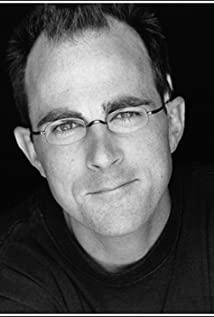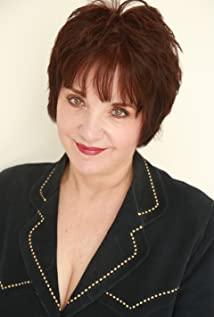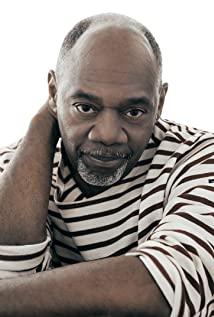When love, desire and workplace sexual harassment are separated by a wall, are you fighting or fleeing?
In the third episode of the first season of the American TV series "Boston Legal", there was a lawsuit. Wendy, the vice president of the company, started a romance with Daniel, the president of his male boss. The woman was overwhelmed and angrily resigned, and turned to take the male boss to court, accusing him of deliberately creating a hostile working environment and forcing her to leave. The more interesting scene is yet to come. The two defense lawyers who took on the case were once a couple, so the relationship between the two became a dark thread in the case. The narrative style intertwined with light and dark, combining workplace sexual harassment with the relationship between men and women, aroused interesting and interesting stories. Deep thinking.
Let's talk about the dark line first. The prosecution (plaintiff) lawyer Alan and the defense (defendant) lawyer Christine are a couple who love and kill each other. Christine was forcibly locked up in a mental hospital for trying to kill Alan when they broke up. During the treatment, Alan still wrote letters and visits to Christine, and cared for her ex-boyfriend. When Christine was successfully discharged from the hospital, she began to "never forget" about Alan. Not only did she follow Alan several times, but she even deliberately took over the sexual harassment case and went to court with her old love.
Anyone with a discerning eye can see that she is a creepy Stalker, constantly appearing by Alan's side in the name of love, from daily life to the workplace, and even she is so blatant that she doesn't need any pretense or excuse. This is her sexual harassment of him. As for Alan, his attitude went from being submissive and soothing at first to his dissatisfaction. In the end, he even accepted the advice of his colleagues and used Christine's emotional illness as a defense strategy. He repeatedly used words to provoke ulterior motives in the defense process. Christine.
Christine is not a soft persimmon. She also knows how to use the charm of women to contact Alan, and she wants to help her client use money to file a lawsuit privately. He used her out of control, she used his old feelings, this kind of two-way use is really typical of the male and female representatives of the metropolis, no one is a little white rabbit, but it is not a bad wolf. It seems to be adding bricks and mortar to their own interests, but it actually reflects the dynamic balance and imbalance between men and women in their love relationships.
Let's talk about the explanation line. Under the careful arrangement of the screenwriter, the relationship between Christine and Alan is exactly opposite & opposite. Christine represented the defendant, Mr. Daniel, and Alan represented the plaintiff, Ms. Wendy. If you take a closer look, there are actually two wonderful character relationships here, one is "perpetrator and victim", and the other is "male and female". The first group of "perpetrators and victims" means that Daniel is the "perpetrator" of the bright line, and Christine is the "perpetrator" of the dark line. And Wendy and Alan are the "victims" under the light and dark, which is a group of correspondence; the second group "male and female", Christine, who is a woman, wants to excuse the male boss who knowingly committed the crime, and Alan, as a straight A playboy at the end of male cancer (yes, Alan harassed his female colleagues almost every day in the show), but seeks justice for a seemingly vulnerable female client. They both have to put aside their gender and identity, stand against themselves, and develop their professionalism. The special arrangement of "correspondence" and "opposition" in the drama is amazing.
The core of the debate between the two sides can be roughly summarized into two points: first, how to define "sexual harassment"; second, should women take advantage of legal bias to "opportunistically" seek greater interests? The first point is well explained. Alan insists that his client was forced to leave due to the other’s endless and tiresome sexual advances, while Christine insists that the woman started out with the same “endless” same as her male superior. The relationship between you and I only started under the "Sexual Show". The male boss's behavior has not changed compared with the previous one. He also believes that the so-called breakup is only because the woman simply wants to be responsible for the family, not because of mutual incompatibility. More feelings. The disagreement between the two sides is nothing more than fighting for the definition of "sexual harassment" by the jury and the judge.
What stood out was Christine's second point in her closing statement: bias. Among them, Mystery must fully release the closing words of Alan and Christine:
Prosecution lawyer Alan: When you love someone deeply, you lose your mind, become absurd and even out of control. Maybe Daniel wasn't in control of his behavior, maybe he really couldn't help wanting to go after Wendy, maybe he had to keep calling and arranging those lunches, maybe he wanted to stalk her if possible (here Alan was stalking him on Christine's part) point) because he loved her deeply. People go crazy when they fall in love, but the question is her mental state—Wendy's mental state (again, targeting Christine), does she deserve to be harassed by such an unreasonable pursuit of love? She was just a woman trying to save her marriage, and her boss kept harassing her five times. It was true that she had loved the man, but that only made it worse. Besides leaving, what choice does she have? Perhaps this can also be understood as the male boss's plan for a long time, because he knew that he had no right to fire her, so he played a mind game, and her only option to end the entanglement was: get in the car and leave. This kind of endless sexual advances, which create a hostile work environment, is the most typical and well-documented form of sexual harassment.
Defense attorney Christine: There is always love in the workplace, and it can even be said that the birthplace of most extramarital affairs is normal, and so is the breakup. As a woman, I hate lawsuits like this because, in a neutral sense, the current sexual harassment laws are gender biased and exist to protect women and make women feel weaker. All of this goes back to early English law where women were not allowed to participate in the making of contracts due to their mental handicap. Today, sexual harassment laws are there to protect us from harassment in the workplace because we feel we cannot stand it. But I can bear it, can you? Do we really need a sexless work environment? (Christine deliberately cued the female members of the jury to awaken their empathy and understanding, which can be said to be quite strategic)
I hate that these laws "determine" that we women are psychologically or emotionally vulnerable. In some cases justice has been done through this legislation, but in this case Ms Wendy, an adult, developed a love-and-love relationship with her male boss that ended up breaking up. He was hurt but still loved her, and she sued him for sexual harassment. In fact, she wasn't fired, she's a highly educated corporate vice president, a professional, but today, out of the blue, she came to tell you that she can't protect herself. She is exploiting the bias of the law to seek more benefits for herself and emphasizes that women are a vulnerable group in gender relations. But I am not! I'm not going to drive away, I'm going to hit him with my car. Therefore, please treat the plaintiffs and defendants this time as real adults who can be held responsible for their actions.
In fact, Christine said this to herself. Before falling in love with Alan, she was a charming and charming female lawyer who graduated from New York University. When Alan decided to break up with her without leaving any reason, she tried to drive him to death, even after being discharged from the hospital. Doing a lot of crazy moves, this is a typical female screen image who loves to faint.
When the verdict was over, Christine took the initiative to find Alan to reveal her heart: "It's really hard for me to get used to leaving you, but I think I'll get through it..." Then, they kissed peacefully, love&peace.
The audience couldn't help but be moved by Christine's infatuated yet calm and powerful transformation. It is true that she is the one who has been let down, but she is not weak. It's not her refusal to face her ex-boyfriend's injuries, but her refusal to stand in the relationship again as a weakling.
She can be crazy and tender, but she wants to tell herself gently: Hey, I think I can get through it. Since it is a cool start that you love and I wish, then after losing all the games, don't try to be coquettish to the society or the law. As an adult, learn to use your own feet to walk out step by step.
Christine's bravery also deserves us to keep asking ourselves: Am I really a victim, or am I a habitual performance victim?
View more about Boston Legal reviews











